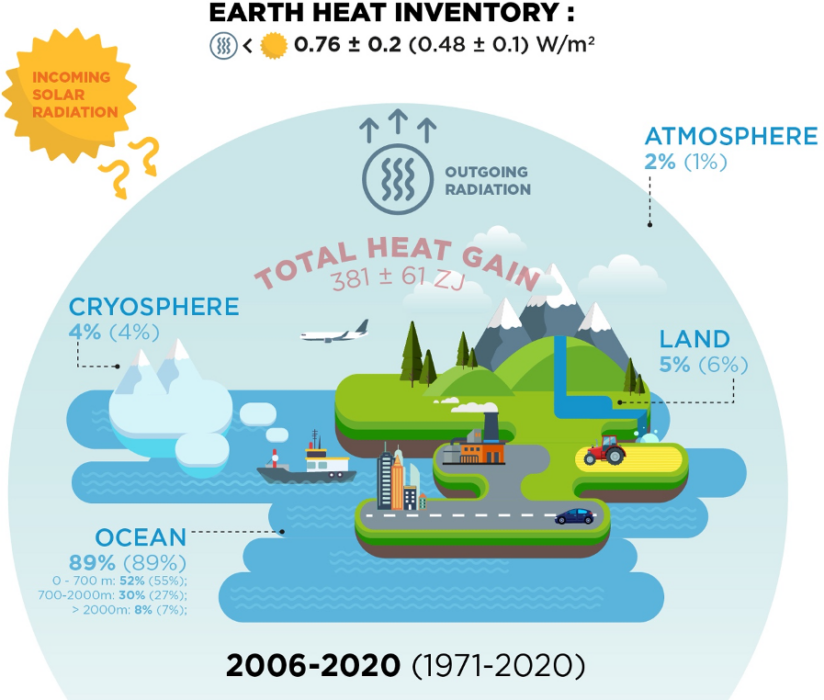A new study published in the journal Earth System Science Data by an international team of 70 researchers from 15 countries led by Mercator Ocean International’s Karina von Schuckmann has revealed that 89% of the excess heat accumulated in the Earth system in the past sixty years has been absorbed by the Ocean. Anthropogenic emissions including greenhouse gases, aerosols and their precursors have resulted in planetary warming over several decades, causing an imbalance in the Earth’s Energy budget.
The EEI indicator refers to the fact that less energy is leaving the top of the atmosphere compared to the amount that is entering the Earth climate system from solar radiation, because of the greenhouse effect. This imbalance means that the Earth is accumulating heat in the climate system, leading to the warming of the Ocean, land, atmosphere, and melting of ice.
The study also shows that in the last 15 years, the accumulated heat has risen by almost 50% compared to the amount accumulated over the last 50 years, with the majority of the heat being absorbed by the Ocean. This has led to sea-level rise, changes in circulation patterns and weather patterns, and negative effects on marine ecosystems. The remaining heat goes into the land (6%), ice (4%), and atmosphere (1%).

The researchers suggest that the Earth’s Energy Imbalance, one of the most fundamental global climate indicators, should be included in the Paris Agreement’s Global Stocktake exercise to measure global progress against climate targets. The study’s findings indicate the importance of understanding the role of the Ocean in absorbing excess heat and the need for urgent actions to mitigate the effects of climate change. The study also highlights the importance of collaborative international research to understand the complex nature of climate change and develop effective strategies to tackle it.
